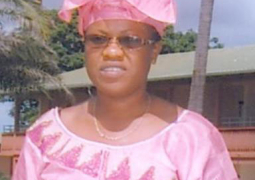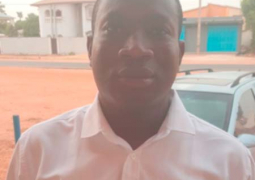
In keeping with traditional largesse, especially in the holy month of Ramadan, the United States Embassy in Banjul on Tuesday extended their Ramadan gesture to the rural community of Sambakala village in the Lower Niumi district of North Bank Region by donating small bags of rice, sets of cups and plates to the residents of the village.
This was done at a welcome ceremony held at the village Arabic school, where the Embassy also hosted an Iftar dinner for Muslims in that community.
The day also saw the donation of a carton of educational materials including books, stationery and footballs to the village Arabic and English school as part of the US Embassy's efforts to make learning conductive and accessible to all.
Welcoming the delegation to the village, the Chief of Lower Nuimi Fabakary Nana Sonko hailed the efforts of the US Embassy for choosing Sambakala village, describing the gesture as timely.
Chief Sonko added that school in anywhere is open for people, but not for animals, and urged the school to make best use of the donated education materials.
He used the gathering to challenge the youths to change their attitude towards education, and to be serious as they are the cream of any nation. He also advised the youths to desist from drug abuse and peddling as it retards development in any form.
Alahagie Sako Njie, the proprietor of the Sambakala Arabic/English School, who also hosted the delegation said the donation and iftar dinner demonstrated the religious tolerance of the people of the United States, quoting the Prophet (pbuh) as saying "any one who provides someone with fast breaking meal (Iftar) shall have the same reward."
Mr Njie made an appeal to the Embassy to assist the village with a borehole so that the water problem they are encountering can be eased. He prayed for President Obama and the entire American people through the Embassy for the gesture.
Speaking earlier, Cindy Cregg, Charge d' Affaires at the US Embassy expressed happiness in the way and manner his delegation was welcomed, and for the venue of the program.
She said the aim of their visit was two fold: the donation of exercise books, prayer mats, small bags of rice, plates and cups for the school, stationery, footballs, and to hold the iftar dinner in the village, which the embassy organises during the Muslim's holy month of Ramadan.
Ms Cregg disclosed that, just last week, an Islamic college was opened in California, which demonstrates the religious tolerance of the American people.
She said the donated items are gifts from the staff of the US Embassy in Banjul, which is now a tradition for the embassy to do in Ramadan. She described education as a very important tool for development, noting that this is why the embassy wants to invest in education.
Ms Cregg also informed the gathering that two embassy staff namely, Tula Orun, the new public affairs officer and Zacky Bailey, the political and economic officer will be visiting the village to see how the embassy can help them.
Imam Baba Leigh of Kanifing Estate Mosque chaired the ceremony and appealed to the Embassy officials to help the village with a clinic. He said most of the villagers travel distances to access health care at the health centre in Essau.
The delegation shortly after arrival was taken on a conducted tour of the facilities at the village school.



